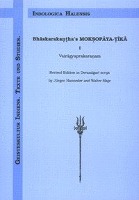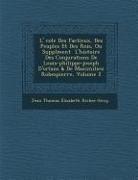Bhaskarakantha's Moksopaya-tika: A commentary on The Earliest Available Recension of the Jogavasistha
BücherAngebote / Angebote:
The Moksopaya, or, as it was until recently known, the Yogavasistha, is perhaps the most voluminous philosophical didactic poem in world literature (VON GLASENAPP). With its approximately 32, 000 verses it exceeds even the Ramayana, and this by 8, 000 verses. Inside the frame story, which situates the philosophical exposition and discourse within one episode of the Ramayana, it utilises a blend of theoretical expositions and parabolic narratives to impress upon the reader its philosophy which aims at effecting a non-ascetic 'liberation-in-life' (jivanmukti). Through its unique narratives it has fascinated the Indian mind and was in abridged versions translated into Indian vernaculars as well as into Persian, was disseminated all over India, and has thus exercised a lasting impact until today. Nevertheless it has not yet received an appropriate treatment in recent literary histories, presumably because neither the historiography of Indian literature nor that of Indian philosophy has yet succeeded in categorising it in a satisfying manner. Strictly speaking it is as yet impossible to do full justice to the work, because its original philosophical content, presented as theoretical explanations of the stories, but also in the form of independent expositions, has suffered considerable changes at the hands of Advaita-Vedantic redactors who from a certain period lay their hands on it and started transmitting it, thus producing the version known at present as the Yogavasistha. Fortunately an older version that has escaped this peculiar redaction, the so-called Moksopaya, has survived in a manuscript recension that can be assigned to the region of Kashmir. In a series of publications we intend to make this text available through a critical edition of the mula text, but also, as a preliminary step, an edition of Bhaskarakantha's commentary, of which only fragments survive.
Folgt in ca. 2-3 Arbeitstagen




